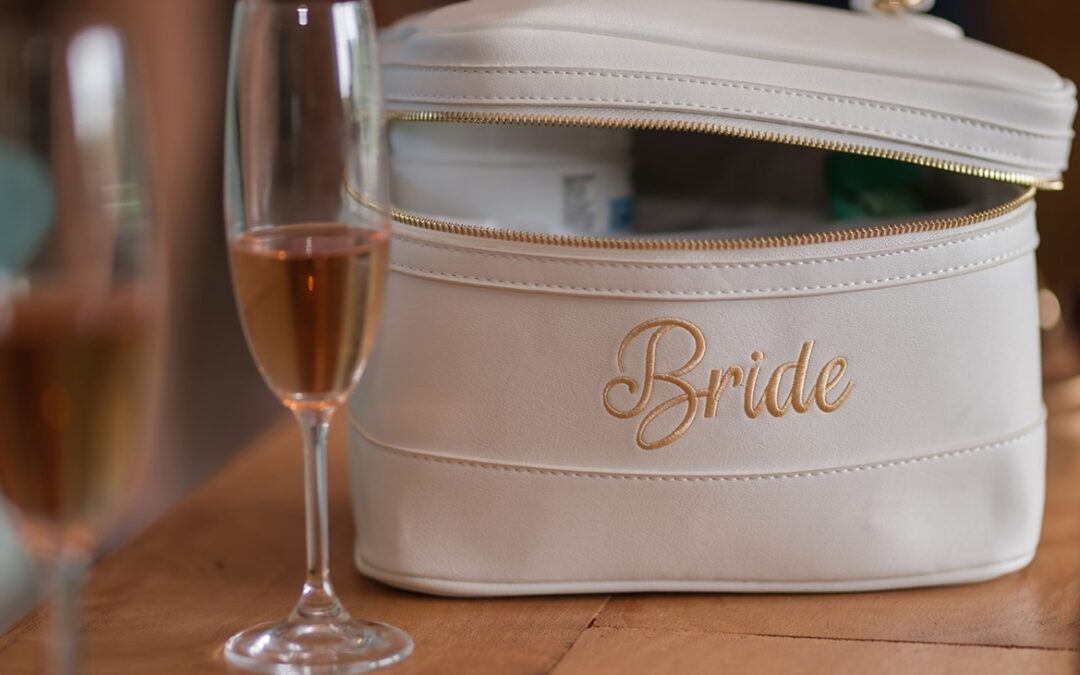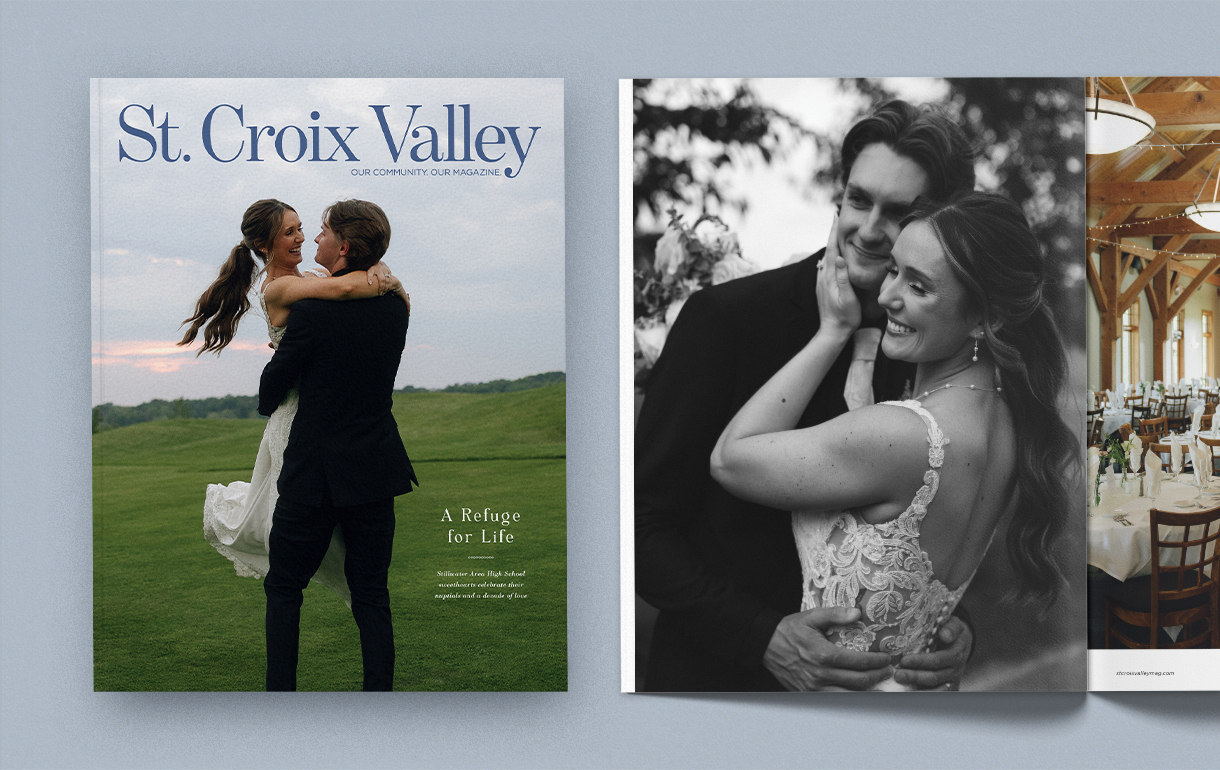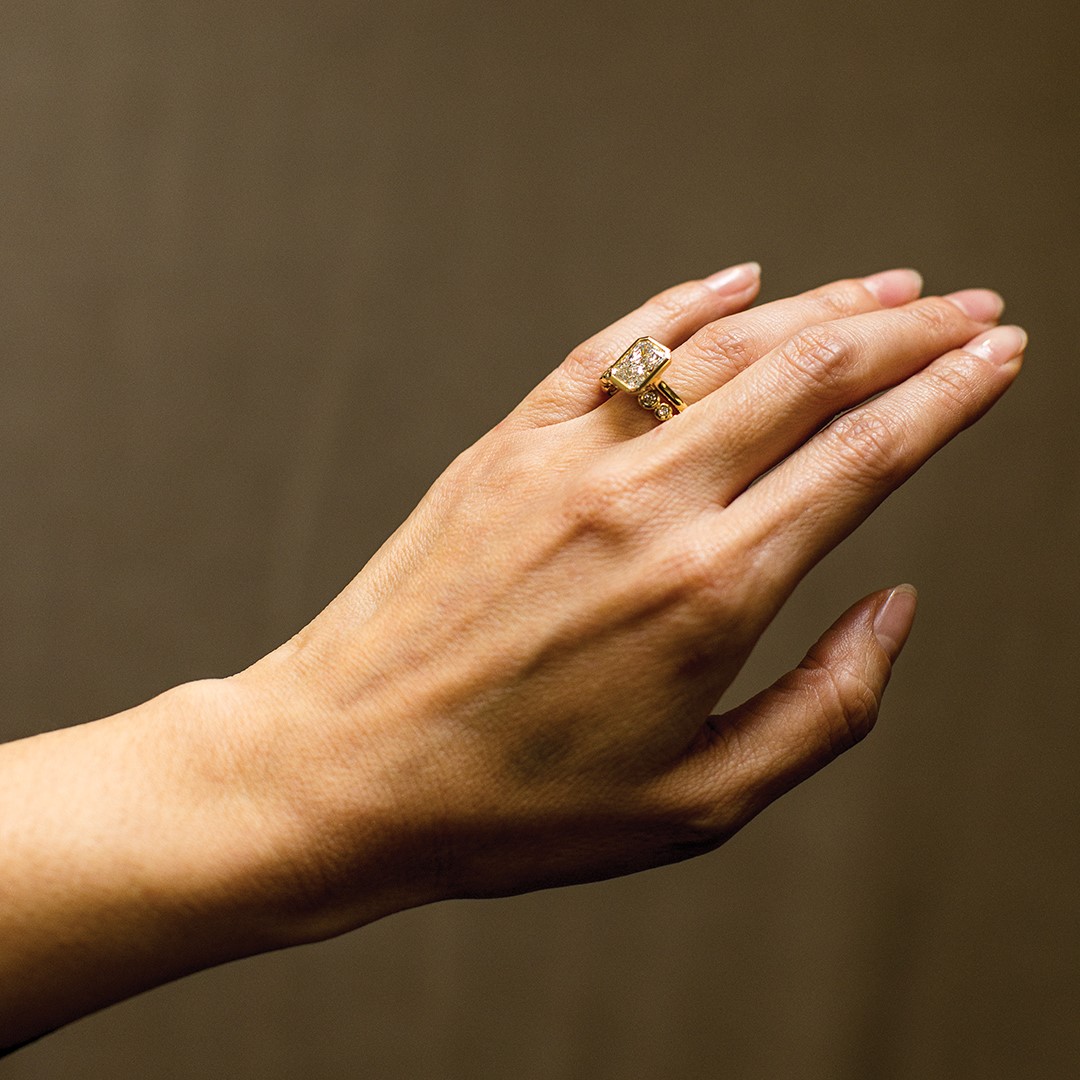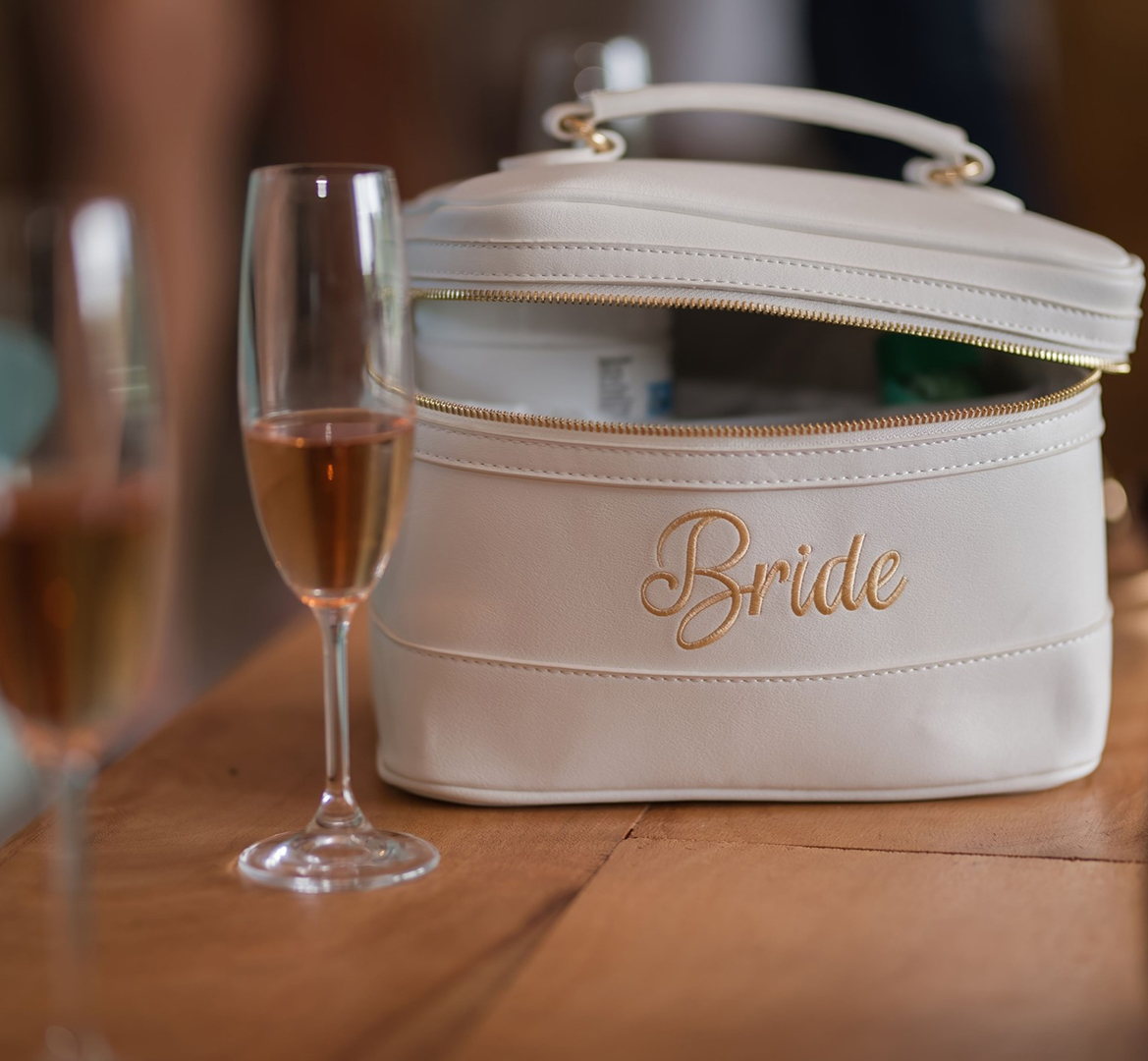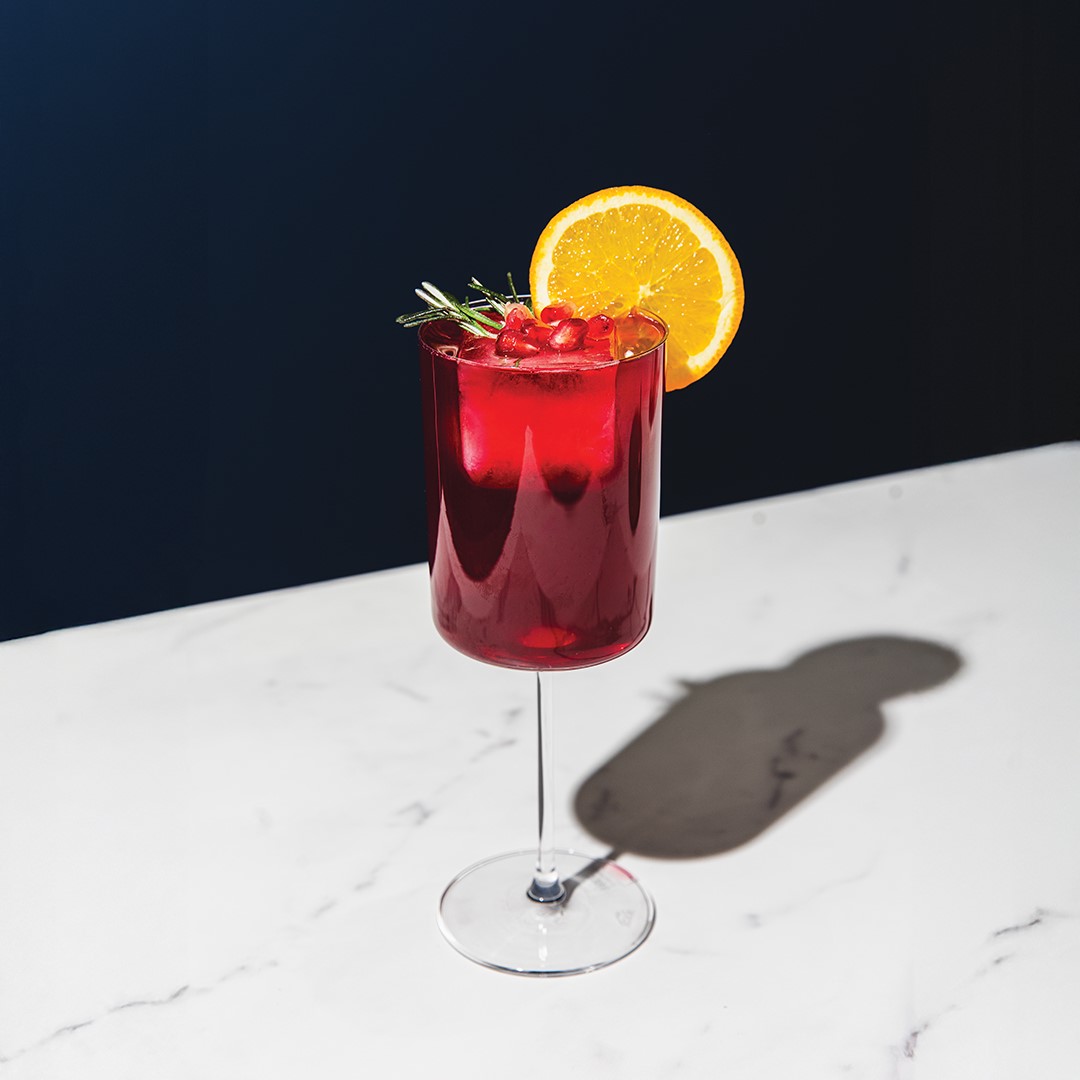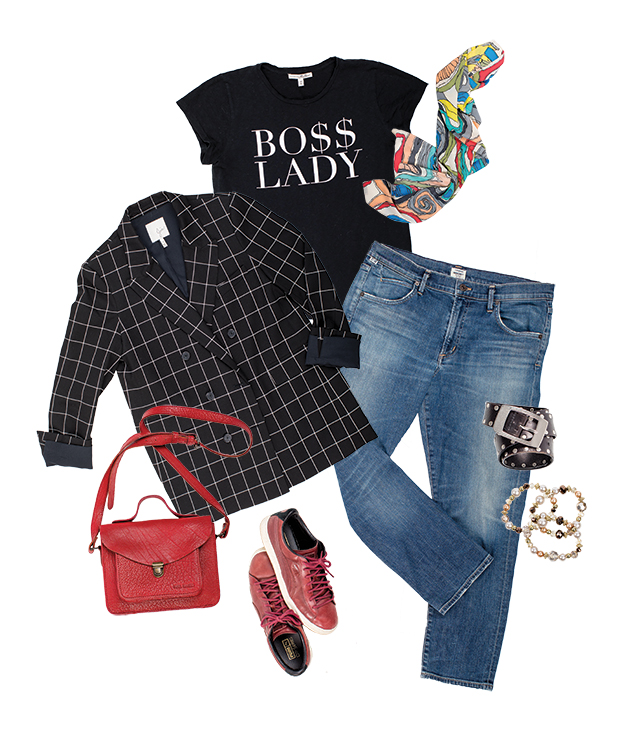
Photo: Chris Emeott
Consider a more eco-friendly closet.
“Most people in the United States only wear about 20 percent of their wardrobes. That means that 80 percent of their clothes are languishing in their closet being unworn,” Nancy Dilts says. “That’s an enormous amount of waste.” Dilts, a personal wardrobe stylist, specializes in helping people become more sustainable in their shopping habits.
Not only are perfectly good clothes gathering dust in closets, but The United States Environmental Protection Agency estimates that, in 2018, there was 11.3 million tons of textiles sent to landfills from the U.S. alone. If this make you want to learn how to create more eco-friendly practices, here are a few tips easily implemented into everyday life.
Start With What You Have
“[What’s] most important is that people are actually wearing what they own,” Dilts says. She suggests creating a foundation for a great closet from the quality pieces people already have.
Once a shopper makes use of what is already in their wardrobe, Dilts suggests that people “purge, donate what can be donated and consign what can be consigned.” Instead of hanging onto items that are outdated or do not fit properly, give those pieces a second life through local consignment shops, selling online or donating to thrift shops.
Shopping Second-hand
“Second-hand shopping is what I’m an advocate of because you’re keeping quality pieces in the use stream,” says Dilts.
Not only does shopping at thrift and consignment stores extend the life of clothing pieces, Dilts says it can also be better for your wallet. “You can afford to invest in those higher-quality pieces that you may not be able to afford in traditional retail. And they last longer than if you buy fast fashion or a lower-quality piece brand new,” she says.
Dilts tips for making the experience successful: be patient, be persistent and know your style.
Shopping New and Ethically
Shopping ethically when buying new often means understanding where garments come from, how they are made and how long they will last. Look for companies that utilize recycled materials, focus on timeless styles or have a dedication to responsible factory and employment practices.
“Invest in high-quality, enduring, classic pieces,” Dilts says. “For those trends, focus on them being accessories and things that are more interchangeable. If you’re not going to wear it 30 times, don’t buy it.”
Considering Capsule Wardrobes
A capsule wardrobe is one way that people look to solve the problem of unused clothing. It restructures one’s closet to minimize the amount of clothes owned and maximize the frequency of using each piece. It involves having a set number of items to have and knowing how to style them in various ways and wear them more often. Many who are interested in capsule wardrobes will use a stylist or follow a guide, like Courtney Carver’s Project 333, which suggests 33 items for every 3-month season.
While capsule wardrobes aren’t always practical for everyone, they can be used as a way to ease styling for certain occasions.
“Oftentimes, it’s for a specific something, so it’s creating a capsule wardrobe for traveling or a work capsule wardrobe, so it makes daily dressing easier,” Dilts says. “Some people are really wanting to embrace minimalism, so it’s helping them to figure out what pieces they already own work really well and then building out from there.”
A few area consignment shops to explore:
Elite Repeat carries both new and consigned women’s clothing, accessories, home goods and art in St. Paul. 1336 Randolph Ave., St. Paul, Minn.; 651.699.2315; eliterepeatstpaul.com
Turnstyle is a national consignment company with various Twin Cities locations. They carry home furnishings, accessories and clothing for men, women and children. 9470 Hudson Road, Woodbury, Minn.; 651.578.6684; turnstyleconsign.com
Second Star features clothes and accessories for women and men in every age group. 114 S. Main St., River Falls, Wis.; 715.513.6605; secondstarrf.wordpress.com
Clothes Mentor has locations across the country, including several surrounding the Twin Cities. They carry consigned women’s clothing, shoes and accessories. 10150 Hudson Road Suite 152, Woodbury, Minn.; 651.714.4488; clothesmentor.com
The Twin Cities is home to many fashion-forward boutiques that support ethical designers. Here are a few of Dilt’s favorites:
Minnesota Made is a locally owned and operated apparel company with designs created and screen-printed in Minnesota with every t-shirt having a hidden quote made to empower and inspire. Proudly using sustainable and USA apparel. 220 Chestnut St. E., Stillwater; minnesotamadeapparel.com
Spoils of Wear is a family owned, sustainable boutique in Saint Paul that focuses on fair trade, zero waste and pieces made in the U.S. They carry women’s and men’s clothing, accessories and gifts. 1566 Selby Ave., St. Paul; 651.414.9698; spoilsofwear.com
Niche carries women’s styles from many Minnesota-based female artists. They are located in St. Paul and are committed to ethical manufacturing processes. 2506 University Ave. W., St. Paul; nichemn.com
Hazel & Rose is a Minneapolis women’s clothing shop featuring sustainable and ethical brands and vintage styles. 201 Sixth St. SE Suite 2, Mpls.; 612.345.4781; shophazelandrose.com
Atelier 957 brings fashion-forward women’s styles to St. Paul while focusing on ethical practices, handmade pieces and small designers. 957 Grand Ave., St. Paul; 651.646.0111; atelier957.com


